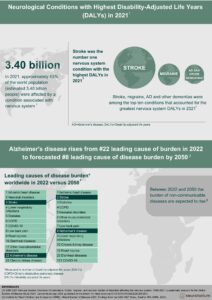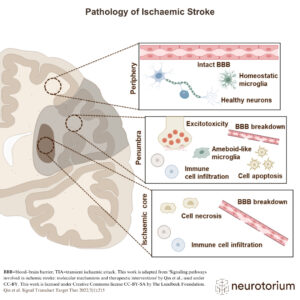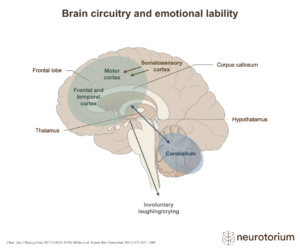- 1 in 2 people experience fatigue (a feeling of early exhaustion with weariness, lack of energy, and aversion to effort) after stroke1
- Post-stroke fatigue is an under-recognized neuropsychiatric symptom, which healthcare professionals should anticipate in patients1





